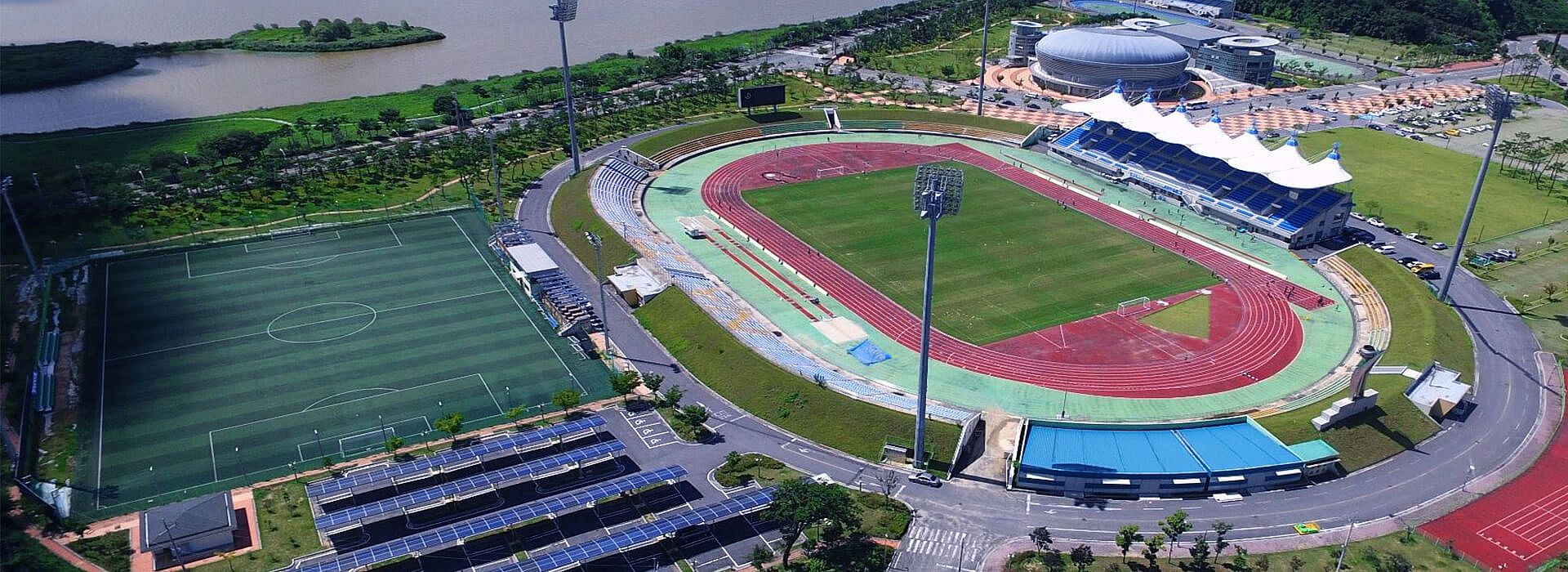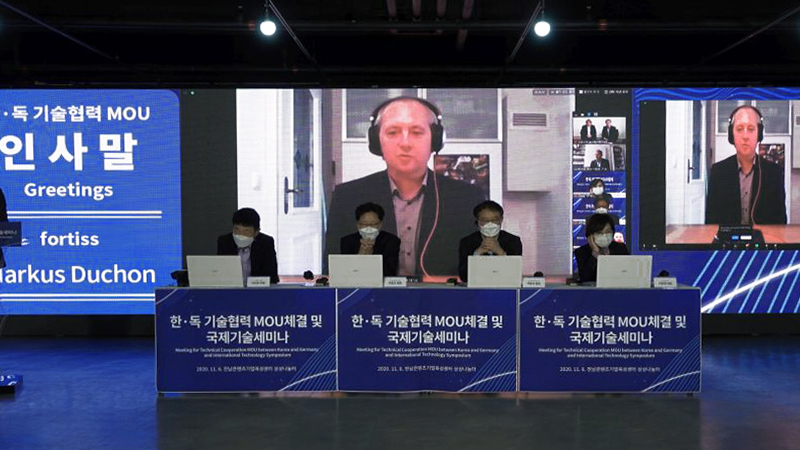fortiss already belongs to one of the first German-South Korean research alliances, which also includes Technical University Munich (TUM), the Fraunhofer Institute for Solar Energy Systems ISE, Korean company GreenENS and the Ö² consulting office. On Friday, November 6, as part of the BIXPO conference on “Energy Transition and Digital Transformation”, the partners signed a mutual letter of intent with the aim of deepening and expanding this cooperative research effort. In light of the current corona situation, the official ceremony was held as part of an online event.
The Gwangju Jeonnam Software Convergence Cluster (GJSCC) will provide organizational and financial support to on-going and future projects, as well as the enhanced exchange of information between the partners. The members of this cluster include Jeonnam Information & Culture Industry Promotion Agency (JCIA), the Gwangju Information & Culture Industry Promotion Agency (GITCT) and the state-owned energy company Korea Electric Power Corporation (KEPCO) and KEPCO Data Network (KDN).
Under the leadership of field of competence manager Dr. Markus Duchon, fortiss is already involved in this collaborative effort through the South Korean project REASON. In this study, the South Korean city of Naju sports park will be used as a smart energy platform. fortiss is supporting the project partners with the expansion of the existing local energy management platform to enable the advanced monitoring, optimization and control of the system.


